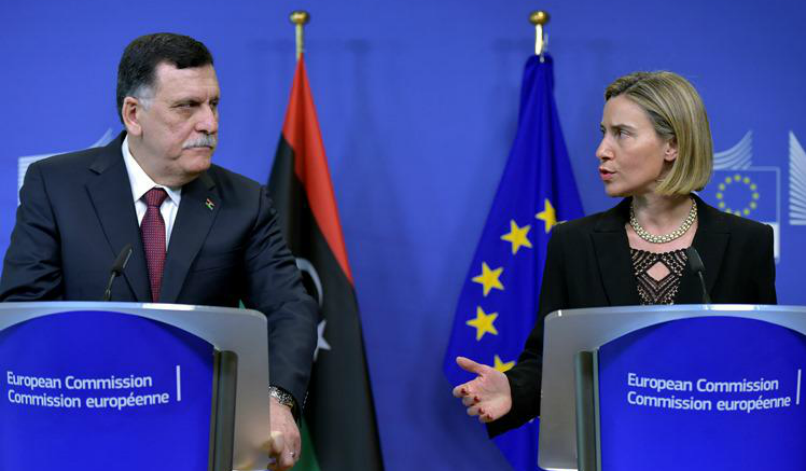Europe will have to unite on a common position on Libya if it wants to keep third parties such as Turkey from exerting their influence on the war-stricken country.
President Recep Tayyip Erdogan announced Turkey was ready to send troops to Libya – a move that is expected to be ratified by Turkey’s parliament on January 06.
The decision comes after the two countries signed a maritime and military border agreement in November, riling EU members Greece and Cyprus as their oil and drilling exploration would be limited under the deal.
International energy deals
But Ankara’s move is also a front to Europe as the maritime deal curbs gas and oil exploration off Cyprus’ coast in the eastern Mediterranean.
Greece and Cyprus have a long had territorial disputes with Turkey and say the maritime agreement is baseless and violates EU law.
EU leaders backed those claims and issued a statement at a December 12 summit, which “unequivocally” sided with Greece and Cyprus.
Israel and Egypt also stand to lose from the Turkish-Libyan agreement, as Cyprus has signed exploration deals with international firms and there are plans for a pipeline that would export gas to Europe.
But Turkey says the agreement protects its rights for gas exploration on Cyprus’ other half of the divided island, the Turkish Republic of Northern Cyprus.
Over the past year, Turkey has sent its own exploration vessels to the eastern Mediterranean — much to the EU’s dismay.
And despite a U.N. embargo, Ankara has already sent military supplies to the GNA, Reuters reported last month citing a U.N report.
Europe risks losing out –
In mid-January, world leaders will meet in Berlin to try and find a political solution to end the conflict in Libya — but the conference is unlikely to end the fighting.
Russia backs General Haftar, and it is believed there is an understanding with Turkey – who backs the opposition — not to come to blows in Libya. The foundation for a deal between the two countries is also reportedly being worked on.
But any deal between Turkey and Russia would push the EU out, as Italy’s Prime Minister Giuseppe Conte warned on December 12.
“We must be united, we cannot allow actors even much more distant from Libya, to position themselves, settle their role in the Libyan scenario and claim the primacy for any solutions,” he said.
However, EU unity will be hard to come by. European countries are divided over which side to support in Libya. Italy and others back Sarraj — but France sides with Haftar.
If EU member states can agree on a side to support, it may also push the U.S. to take a decisive stance on the war-torn nation.
But if Brussels take a back seat and watches the conflict unfold as an impartial bystander, the EU risks losing its influence in Libya as well as its Mediterranean coasts.
Source: Forbes



